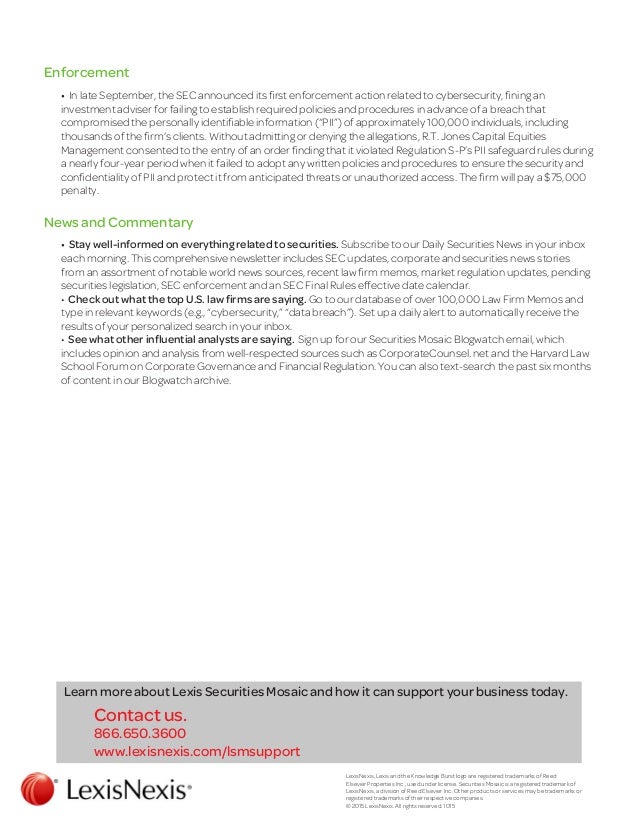
The shareholder rights movement has long argued, for example, that because shareholders have, at least by some accounts, the right to the residual, shareholders ought also have control over the board of directors. The fundamental independence of the division of the froth from the problem of creating it – of distribution from efficiency – has long been obscured by the mistaken notion that the firm will perform well only if the party that gets the firm’s wealth, sometimes called the residual claimant, also controls the management of the firm.
#Securities mosaic full#
Antitrust requires that it be paid out in full to consumers in the form of low prices. Advocates of shareholder primacy have long argued that this froth should go to shareholders in the form of the profits generated by high prices advocates of corporate social responsibility have said that boards should spread this froth fairly among all constituents of the firm, including workers and victims.

The wealth of the firm, in the economic sense, is what is left over after costs, including sufficient payment to shareholders to secure their participation, have been paid, a froth that can be ladled out to one group or another without crippling the ability of the firm to perform. By contrast, the accounting definition of cost excludes payments required to compensate shareholders, which is why in the popular imagination profits are necessary for businesses to exist. The consumer welfare standard requires that firms charge prices equal to the cost of production, understood to include every last payment required to make the firm maximize the value that the firm creates, including not only payments to labor and management, but also sufficient payments to shareholders to make them willing to contribute capital to the firm.

The notion that firms should generate no profits can inspire panic, because of confusion between the accounting and economic definitions of cost. The states do not even require, as they do of many rate regulated firms, that corporations notify regulators of the prices they charge to consumers, let alone meaningfully regulate those prices.

But state regulators do not directly supervise boards’ exercise of their state-corporate-law-granted authority to maximize profits. The only exception to supremacy is for behavior that is directly supervised by state regulators. I argue in a recent paper that these other rules are preempted by federal antitrust laws that are supreme over all conflicting behavior authorized by state laws. Rules once thought to determine the distribution of corporate wealth, from the voting rights of shareholders, to the fiduciary duties of boards, to charitable contribution statutes, are all of no relevance, because federal antitrust law requires that firms earn no profits at all but work instead for the exclusive benefit of their customers. The consumer welfare standard requires that firms pay their profits out in full to the one constituency that has hardly figured in debates over corporate mission: the consumer, by charging consumers the lowest possible prices in exchange for products of the highest possible quality. The rule that consumer welfare must be maximized therefore means that profits must be minimized. This standard, adopted in the 1970s, resolves the long-running debate about which corporate constituency has a right to the profits of the firm, because profits and consumer welfare are a zero-sum game: Profits can be generated only by reducing the margin between price and quality, in effect redistributing wealth from consumers to firms. The consumer welfare standard in antitrust law requires that firms maximize the margin between price and product quality, a quantity called consumer welfare by economists.

But despite being a shareholder in numerous firms, BlackRock should not actually have a say over what happens to corporate profits, because the law already requires that profits go to one group only, and not the group you might expect. BlackRock, the vast asset manager, has been feted for demanding that the boards of its portfolio firms pursue a social purpose, which likely entails spreading corporate profits beyond shareholders to include labor and victims of environmental harm.


 0 kommentar(er)
0 kommentar(er)
